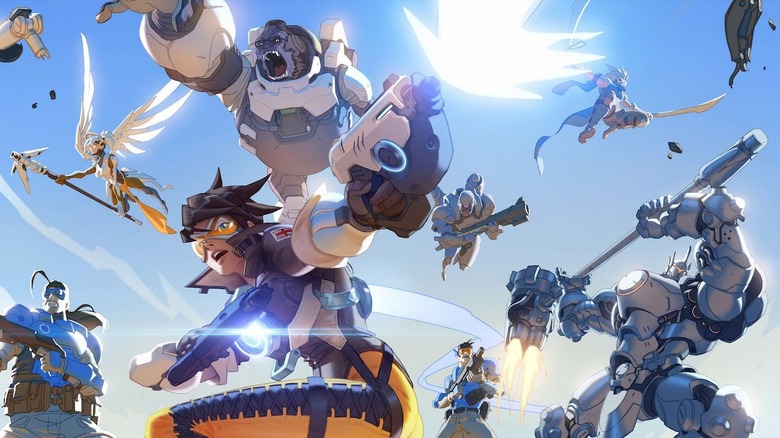It's time to stop making excuses for game publisher greed
If you find you're dismayed by the current state of the AAA games industry, you certainly aren't alone. These days, it seems like many games from publishers like Electronic Arts, Activision, Ubisoft, and countless others are vehicles for microtransactions first and actual games second. Publishers have been getting bolder and bolder with their monetization strategies, and as much as it may sting to hear it, some of the blame for that lies with us, their customers.
Obviously, not all of the blame rests with us. Companies like Electronic Arts and Activision have made the conscious decision to turn AAA games into something that closer resemble free-to-play mobile titles with an upfront cost, and their endless pursuit of profits above all else was the catalyst for that decision.
Still, while we customers may not be entirely culpable, we do deserve some of the blame for the state of things in the AAA games industry. That's because we didn't nip it in the bud as soon as publishers started implementing loot boxes and microtransactions as a way of further monetizing games.
How often have you heard someone say "as long as they're only selling cosmetics, I'm okay with it"? I'm guessing you've heard that quite a bit. I've said it myself plenty of times in the past, particularly when it concerns games that I like, such as Overwatch or Rocket League.

The problem is that while we thought we were drawing a line in the sand, we were really giving publishers a foot in the door in regards to shady post-launch monetization. Electronic Arts and Activision don't care about that line. EA blew right past it with Battlefront 2, and it took a major outcry to get it to change the fact that progression was tied to loot boxes in that game.
Though Electronic Arts and DICE removed loot boxes from Battlefront 2 and promised to fix progression, loot boxes eventually returned to the game. This time around, they featured only cosmetic items, and if you take a look around the internet, you can see people recommending Battlefront 2 these days, proclaiming that EA fixed the stuff that was wrong and that it's actually fun to play.
In my opinion, Battlefront 2 should have died the moment that Electronic Arts tried to launch with progression tied to loot boxes and DICE trotted out its infamous "we wanted to give players a sense of pride and accomplishment," line, but it didn't. Sure, DICE and EA may now have the most downvoted comment in Reddit history, but if gamers are recommending Battlefront 2 to others because "it's actually really fun now," what did they lose?

I would argue they've lost nothing yet, not even with the response this controversy sparked in governments around the world. Belgium and The Netherlands straight up banned loot boxes from games by designating them as gambling, but here in the US, the response from our government hasn't nearly been as stern. We've heard about legislators presenting bills to ban loot boxes and the FTC considering action on the issue, but so far, no definitive action has materialized.
Ideally, we shouldn't need the government to step in and regulate loot boxes, because we – as the people who are buying these games – should have squeezed them out the second they reared their ugly heads. I've never met a single person who actually likes loot boxes and microtransactions in retail games that require up-front payment. I'm sure some exist, but many more seem to openly lament loot boxes in games.
Why, then, are these microtransaction-packed AAA titles still among the best selling games in the world? According to NPD, NBA 2K20 was the 2nd best-selling game of 2019. This is the same NBA 2K20 that had a pre-release trailer which significantly blurred the line between actual gambling and microtransactions. For God's sake, the trailer actually showed players spinning virtual slot machines and roulette wheels trying to win something. It's flat out blatant in the comparison it's trying to draw.
With the UK's NHS recently drawing distinct connections between loot boxes in games and gambling addiction in kids, there could be very real consequences to not only the greed of publishers, but also to our complacency as customers, too.
I'm not usually one to scream "think of the children!" whenever something slightly offensive comes into my line of sight, but these loot boxes are specifically designed to get us excited at the prospect of spending money on an unknown outcome. As far as I'm concerned, that's gambling, and children – adults too, for that matter – shouldn't have to deal with that kind of manipulation when they're just trying to play a game.
Of course, not everyone who buys these games are enthusiasts who read about games, follow controversies on Reddit and similar sites, and add their voice to the outrage whenever companies mess up. I'd bet that most of them are not and are just generally apathetic toward loot boxes in video games, either accepting them as the new reality of gaming or ignoring them entirely.

At one point, I may have agreed with that apathy, telling people to just not buy those loot boxes or microtransactions and vote with their wallets. I'm beginning to think that's not enough, though. In fact, I'm starting to think that being apathetic toward loot boxes is the worst thing we can do, because even if many of us keep our wallets in our pockets, there will always be other people who bust them out so they can spend some cash.
What do we do, then? A good start would be to refuse to accept loot boxes in any form, even if they're only hocking cosmetic items. Whenever a publisher proudly announces that while its $60 game does have loot boxes, they'll only contain cosmetic items, get angry anyway. Throw it back in their faces and call them out for their greed. Let them know that you think loot boxes are trash regardless of what's contained in them.
If gamers reached Battlefront 2-levels of upset every time a publisher announced a new game with loot boxes, I bet we'd see some things change for the better. Stop excusing greed by imagining there's some kind of line where loot boxes go from acceptable to unacceptable. Stop pre-ordering games. Give retail games with loot boxes poor user reviews on platforms like Steam and Metacritic, specifically citing those loot boxes as one of the reasons for your low score.
Maybe stuff like this won't effect change among major publishers, but as the people holding what these companies want most – money – we have more power than you might initially think. Publishers like Electronic Arts and Activision have already demonstrated that if we give them an inch, they'll take a mile. It's time to stop giving them anything at all.
